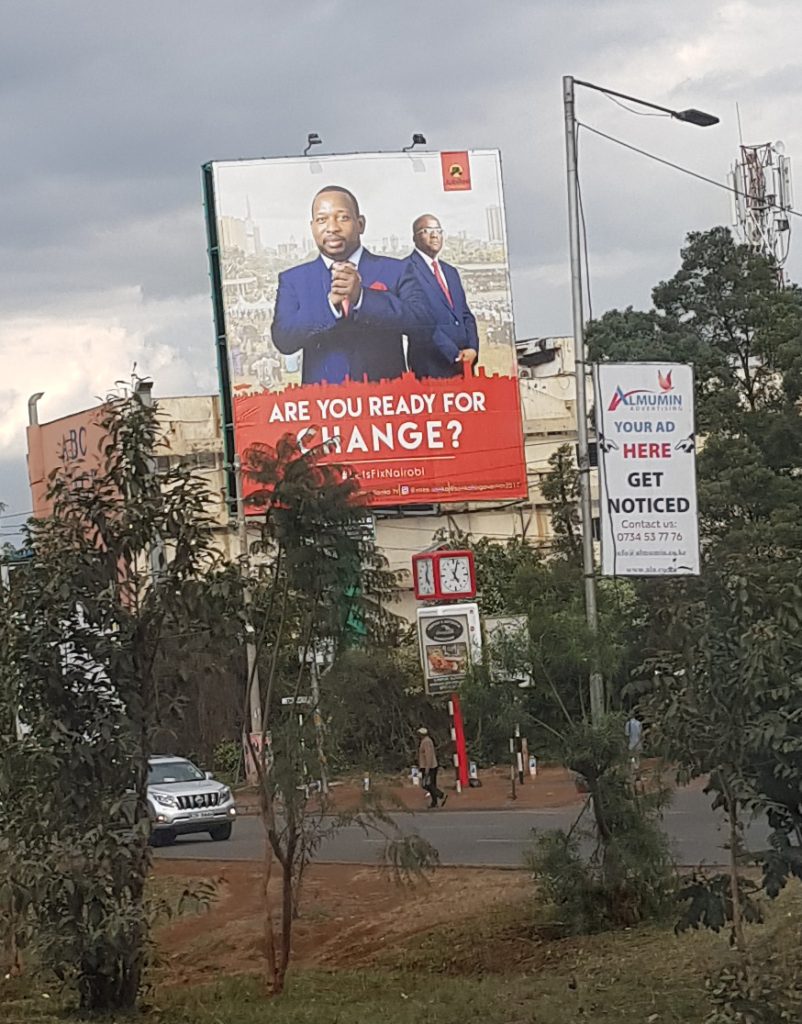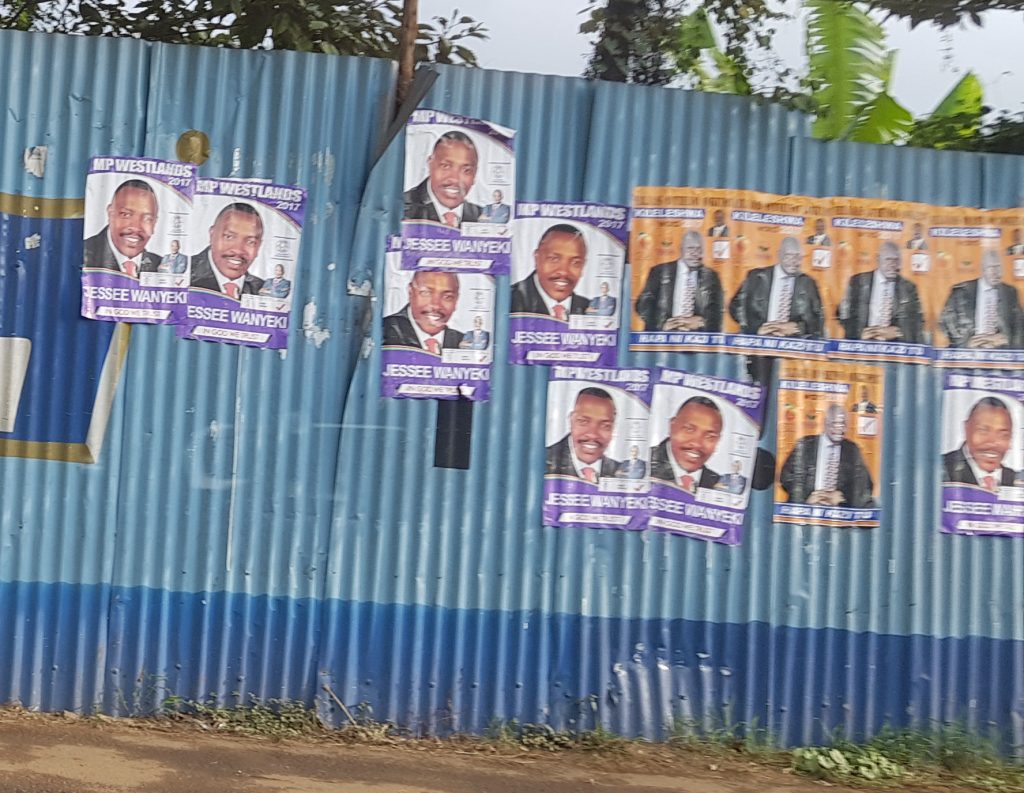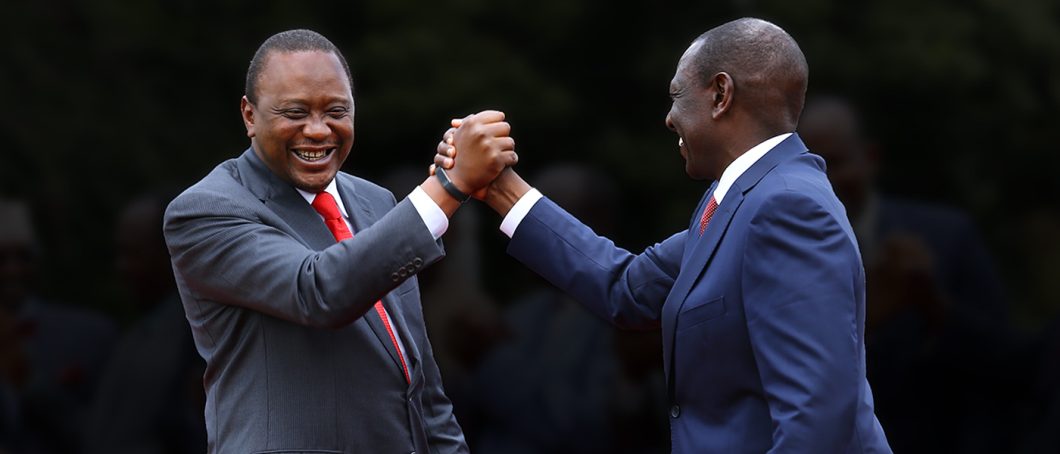Throughout most of 2017, Kenya has been in an election fever mode. Being here while it happens, is a peculiar experience, as all activity grinds to a standstill, while all eyes are on the campaigning.
Africa’s most expensive elections ever

The Kenya 2017 general election is estimated to be the most expensive in the history of Africa, at USD 1bn.
The media and online advertising industry are having their heyday. Billboards and posters of smiling politicians adorn every inch of the country. Every TV and radio channel is blaring out political ads, telling you to vote for “our” man or woman. Colorful, open campaign vehicles with dancers and loud music are visible features everywhere.
Monotonous news
Like during every election in Kenya, news have become rather monotonous. There are few stories not related to the election: Which politician insulted whom? Is the government planning to rig in their home areas, or the opposition in theirs? Is some MP aspirant bribing voters, and will the presidential loser accept the results? Kenyan elections rotate around those questions, along with the big one: Will there be violence?

No election in Kenya has ever been without serious drama. This one seems to have peaked with the brutal death of Chris Msando. When the ICT Director of the IEBC was found dead, security agencies were tight-lipped about the ongoing investigation. Speculations have been rife, though, about everything from rigging attempts from people either in government or the opposition alliance, to rumors about a jealousy drama. While the murder is obviously a blow to the hopes of a showcase, flawless election, there is however scant evidence that Msando’s tragic death might affect the integrity of the polls per se.
A well organized election
Despite numerous political controversies, the IEBC seems to have pulled off a decent job in terms of organizing the elections. With more 40,000 polling stations set up, less of the endless queues normally characterizing Kenyan elections, are expected.
The international election observers team is led by none other than former US Secretary of State, John Kerry. A clear sign of how keenly the world is watching this election.
It is therefore clearly a positive sign that John Kerry expresses his confidence in the process.
The most competitive election in Kenya’s history
Since the re-introduction of multi-partyism in 1992, elections in Kenya have revolved around ethnic division lines and alliances. The quest for the presidency would primarily involve building alliances with those calling the shots in the various ethnic communities. The official election campaign would then merely be a formality.
The 2017 election, however, has brought in some subtle changes to that reality. The ethnic element has not gone away, but the political blocks have fewer “bedrock” constituencies than in previous elections. Counties and constituencies that were previously seen as “solid” have become battlegrounds. As a result, both the governing Jubilee, and the opposition NASA alliances frantically tour every corner of the country. No vote is taken for granted.
With two blocks of comparable sizes, where neither commands a majority, whoever convinces the undecided voters in the middle, will bag the ultimate prize. This signals the emergence of a new and different political reality.
We may still be far from anything close to the traditional left/right ideological division of Western countries. We are, however, already seeing an aggressive fight for credibility about the ability to deliver reforms and public service. This already represents a significant shift in the political environment.
Kenya’s reputation at stake
While widespread violence at the scale of 2007 are unlikely this time, minor riots in the slums after the election are expected. Anything beyond that, would cast doubts on the stability of the country in its entirety. The execution of the electoral process, and its aftermath, are therefore of paramount importance for Kenya. Since independence, Kenya used to hold a reputation as a beacon of stability in Africa. That image was shattered by the 2007 post-election violence. With the positive image partially restored after the peaceful 2013 election, a free and fair 2017 vote would go further in restoring credibility.
A rising economy
Kenya is already in the African premier league in terms of infrastructure. Since the Kibaki era, the country has embarked on a mindblowing development, characterized by smooth, new highways and railways, a construction boom, and solid economic growth.
Ernst & Young currently ranks Kenya as the second most attractive investment destination in Africa, after Morocco.
With a well-managed, peaceful election in 2017, Kenya would reinforce the positive image, and the strong growth trend. The world is watching, and it is upon Kenya to deliver.
